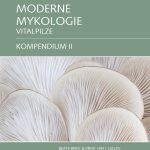A polysaccharide deacetylase from Puccinia striiformis f. sp. tritici is an important pathogenicity gene that suppresses plant immunity
Qiang Xu1,† , Jianfeng Wang1,†, Jinren Zhao1, Jinghua Xu1, Shutian Sun1, Huifei Zhang2, JiaJie Wu2, Chunlei Tang1, Zhensheng Kang1,* and Xiaojie Wang1,*
1 State Key Laboratory of Crop Stress Biology for Arid Areas and College
of Plant Protection, Northwest A&F University, Yangling, Shaanxi,
China
2 State Key Laboratory of Crop Biology, Shandong Agricultural
University, Tai’an, Shandong, China
Summary
The cell wall of filamentous fungi, comprised of chitin, polysaccharide and glycoproteins, maintains the integrity of hyphae and protect them from defence responses by potential host plants. Here, we report that one polysaccharide deacetylase of Puccinia striiformis f. sp. tritici (Pst), Pst_13661, suppresses Bax-induced cell death in plants and Pst_13661 is highly induced during early stages of the interaction between wheat and Pst. Importantly, the transgenic wheat expressing the RNA interference (RNAi) construct of Pst_13661 exhibits high resistance to major Pst epidemic races CYR31, CYR32 and CYR33 by inhibiting growth and development of Pst, indicating that Pst_13661 is an available pathogenicity factor and is a potential target for generating broadspectrum resistance breeding material of wheat. It forms a homo-polymer and has high affinity for chitin and germ tubes of Pst compared with the control. Besides, Pst_13661 suppresses chitin-induced plant defence in plants. Hence, we infer that Pst_13661 may modify the fungal cell wall to prevent recognition by apoplastic surveillance systems in plants. This study opens new approaches for developing durable disease-resistant germplasm by disturbing the growth and development of fungi and develops novel strategies to control crop diseases.
Keywords
Puccinia striiformis f. sp. Tritici(tritic), polysaccharide deacetylase, PAMP-triggered immunity (PTI), wheat (Triticumaestivum, Triticum aestivum).







